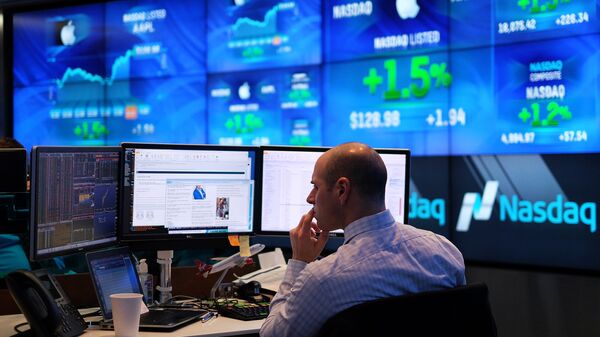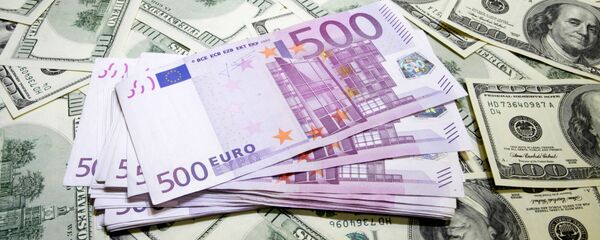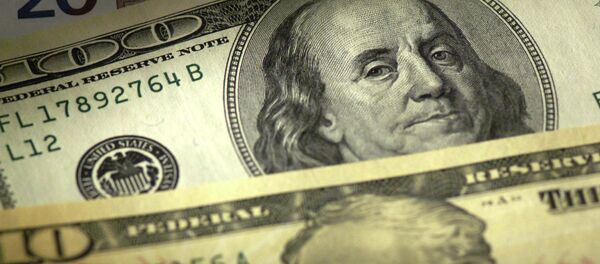Such a decision announced by the US higher monetary authority prompted a buyout in stocks all across the globe as investors are aware that on the day the US interest rates are moved it will be the right moment to sell. The dollar fought back most of its losses it suffered during the uncertainty of the past two days. However, the Fed noted America's economic growth has moderated slightly as a stronger dollar hit the inflation badly.
Stocks in Asia-Pacific rallied during Thursday's trading on the news coming from Washington. A slower economic growth in the US and the supported trend on the dollar's strengthening are both good signs for the Japanese export-oriented industrial enterprises. Consequently, the MSCI APEX Index in Tokyo added 0.8%, hitting its highest since last September at the close. The biggest gainer, Nintendo Co. skyrocketed by 36% after announcing I would develop entertainment mobile apps for devices made by various other companies.
US equities and bonds (primarily, Treasuries) advanced on Wednesday after the Fed announcement that after the first rate hike it would be 0.625% in late 2015 (as compared to 0.250% at this moment). According to previous forecasts, the rate after a first increase would reach as high as 1.125%, which is a huge difference in the estimated increase in borrowing costs of dollar-denominated liquidity.
In Australia, also cheered by the news, the S&P/ASX 200 Index rose by 1.9%, driven by gains in the banking sector (cheaper US dollar liquidity will be available for longer, yielding better profits). In New Zealand, NZX 50 Index added 0.2% as the nation's economy accelerated to its fastest since 2007. Korea's Kospi Index rose by 0.5%, and Japan's broader Topix Index retreated 0.4% as the yen rallied against the dollar before the Fed announcement, potentially hurting the exporters.
Janet Yellen, seeing unemployment at its ‘normal' of 5-5.2% as the key indicator of strength in the US economy, is preparing for the final chords in the world's biggest experiment in unorthodox monetary policies, which the huge-scale bond-buying and the near-zero interest rates have been after the onset of the global turbulence in 2008. The stock markets are really optimistic at this moment as the era of ultra-cheap dollar-denominated liquidity will end within a matter of three month, so now's the time to buy as much as possible in order to either sell-off or capitalize on the gains after the rate hike.
In China, the Shanghai Composite Index rose only by 0.1% as the cheering on the promised by Beijing monetary easing has worn out. Hong Kong's Hang Seng Index rose by 1.5% though.
In Europe, stock markets hit their 15-year highs as the weaker euro allows huge profits in the financial sector and adds to the global competitiveness of the European industries. On the Stoxx Europe 600, all the 19 manufacturing groups surged, with biggest gains in the mining sector. Rio Tinto added 1.5% as industrial metals advance in price on a tumbled during past two days US dollar.
The Stoxx 600 added 0.7% in London, hitting its highest since September 2000. UK equities rallied due to the solid fiscal performance of Britain. In Sweden, the central bank's cut in interest rate also triggered a rally in equities. Even in the troubled Greece, the ASE Index rose by 0.1%, despite the German chancellor Angela Merkel said the solution to the Greek crisis would be long and complicated.
The European stocks are poised for future gains on the strength in the region's real economy, solid balance sheet and fiscal performance and more conscious political coordination than ever. However, the stock here might be overvalued, thus creating certain risks. The continent's well-being really depends on how long and costly the solution to the Greek standoff would be.
A more popular practice these days, to buy oil cheap, put in on storage in order to sell later, whe the price is higher. This is a yet another reason why the potential growth in oil prices will be effectively offset by immediate sell-offs elsewhere, meaning the crude will not appreciate to its abnormally high valuations of over $100/bbl of the recent years anytime soon.
Also, in Asia, 7 of 11 most traded currencies surged Thursday as a reaction to the recent depreciation of the US dollar. The Korean won lead the surge (+1.1%), damaging the nation's exporters. For most Asian nations a dearer national currency is a curse as they are largely export-dependent. The mainland China's renminbi added 0.51%, adding to the deflation and slower growth concerns. Thailand's baht added 0.5%, hitting the tourism sphere.





